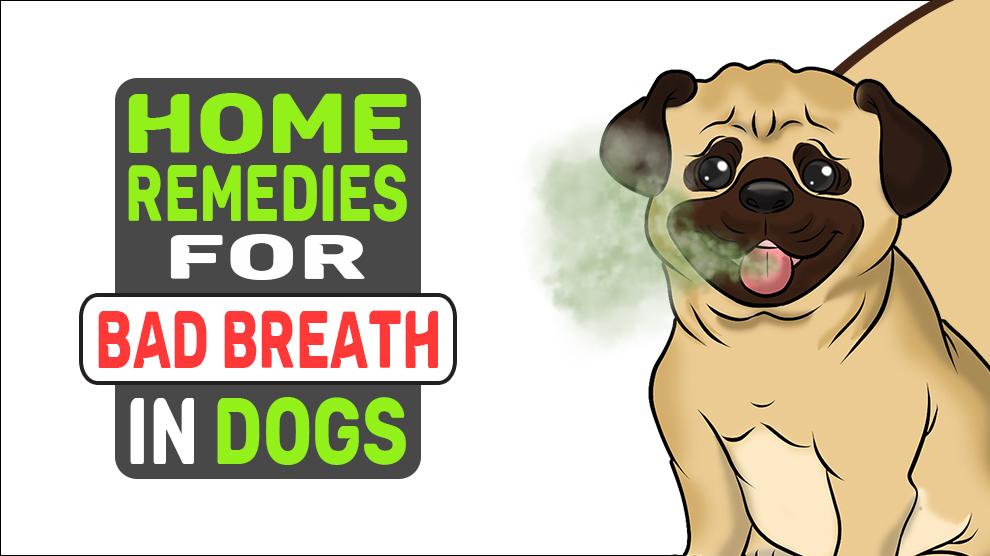Possible Diseases For Bad Breath
- Megaesophagus - Read More -> Megaesophagus In Dogs - Symptoms & Treatments
- Tooth Attrition - Read More -> Tooth Attrition In Dogs
- Nasal Cancer - Read More -> Nasal Cancer In Dogs: Facts, Symptoms & Treatment
- Regurgitation - Read More -> Regurgitation In Dogs
- Affected By Sand Burrs - Read More -> Sand Burrs And Dogs - How To Get Burrs Out Of Dog Fur?
- Hepatocutaneous Syndrome - Read More -> Hepatocutaneous Syndrome In Dogs
- Kidney Failure - Read More -> Kidney Failure In Dogs - Symptoms & Treatment
Home Remedies For Bad Breath
1. Brushing Your Dog’sTeeth:
Perhaps the single best thing you can do to keep your pet’s mouth in the good physical condition and to stop bad breath is brushing your dog’s teeth regularly. Before using any toothpaste directly on your dog's toothbrush, let the dog sniff the toothbrush and get used to the smell and let him lick it off in the first week. Initially, start with the front teeth and move backward. When you try to start tooth brushing when your dog is a puppy, the whole procedure becomes easier.
2. Probiotics:
When you’re apprehensive about your dog’s digestive health or oral health, probiotics for dogs offer many benefits. Another reason to get interested in canine probiotics is they help the dogs to better absorb minerals like calcium, magnesium, and zinc they take in through your food. What counts from a health standpoint is whether the minerals you take in through your diet or supplements actually make it into your bloodstream. Probiotic bacteria give you a “leg up” on mineral absorption.
The common probiotic source is fructooligosaccharides (FOS) but other oligosaccharides, lactulose, and arabinogalactans are also considered. Sources include larch (a source of arabinogalactans), inulin (most commonly extracted from artichokes, chicory roots), beet pulp, pectins, and wheat dextrin (Benefiber), and galactomannan polysaccharide (e.g., guar gum).
Food sources of prebiotics include fruits (like Bananas, Apples) Green leafy veggies (dandelion leaves are especially good), legumes (peas, beans, lentils), whole grains, Jerusalem artichokes (sunchokes), and Mushrooms. Some commercial canine probiotics have added sources of soluble fiber. Soluble fiber supplements (which can be used as prebiotic supplements) are also available.
3. Halitosis Helper Foods:
- Parsley and Mint
- Natural yogurt
- Garlic Cloves (note: check the right amount)
- Wheatgrass
- Cinnamon
- Coconut oil
4. Dental Chews:
Always use the proper dental chews approved by Veterinary Oral Health Council (VOHC). Regular use of dental chews not only stops bad breath but also helps to reduce periodontal disease.
5. Natural Treats:
- To ensure your dog isn’t dealing with an undiagnosed illness, Discuss it with your veterinarian before pursuing natural breath freshening options.
- Most dogs love the taste of Crunchy natural snacks like Carrot Sticks & Apple Slices which also helps to clear bad breath.
- Homemade treats like wide strips of sweet potatoes, sprinkled with parsley cooked in the oven at a low temperature until the strips start to dry out.

















